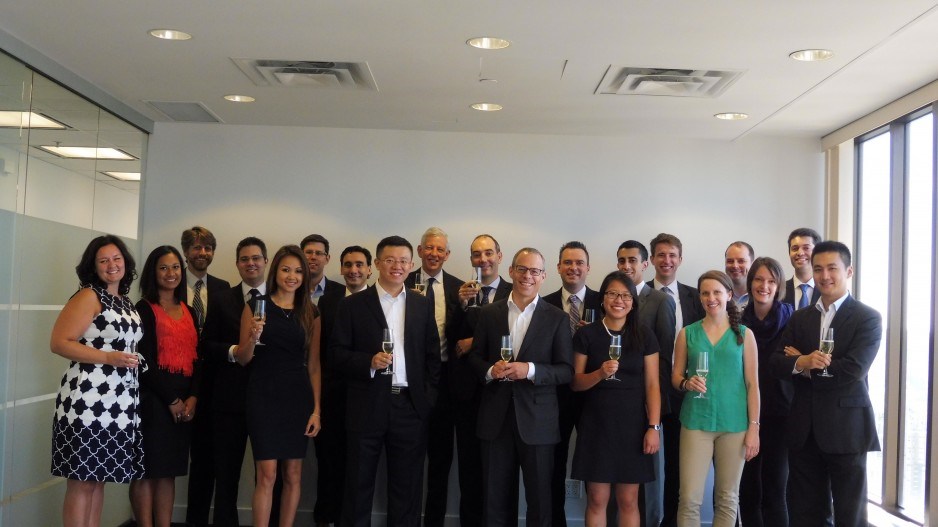The decision by the global management consulting firm McKinsey & Company to open a Vancouver office is yet more proof of the city’s tectonic shift from a lower business profile to major leadership in the world economy.
Vancouver Board of Trade president and CEO Iain Black recalls the “very excited” response among board of trade members when McKinsey global managing director Dominic Barton announced the opening of the Vancouver office during a keynote address to them earlier this fall.
“The future in Greater Vancouver and British Columbia is brimming with opportunity,” Black says. “We are on the cusp of global greatness. It’s clear McKinsey recognizes that and is eager to help our local business community embrace the challenges and opportunities ahead.”
McKinsey Vancouver managing partner Miklós Dietz confirms the significance of his company’s imminent move into a 5,500-square-foot office in the Scotia Tower, at the corner of Seymour and West Georgia. “We expect that Vancouver can become a true leader of the Pacific metropolis in the 21st century in economic growth, innovation and economic, ecological and societal sustainability. Our Vancouver office is to act like a gateway to the world, bringing in our best global experts to help in the relevant topics.”
McKinsey’s diverse leadership team includes experts in mining, telecom, banking, technology, advanced industries and the public sector, Dietz explains.
“As management consultants, we typically specialize on the bigger issues, where stakes are high and true global best practice is crucial. We aspire to do the same in B.C., and deliver large-scale, measurable impact.
“We see significant upside in Vancouver as a global business centre. For example, comparing the market capitalization of locally headquartered public companies versus GDP, Vancouver is standing at only one-third of the average of both its Canadian and U.S. peers. This is a $250 billion market capitalization gap. With the city’s natural advantages, we should at least aim for catching up – such a catch-up could radically improve the province’s economy, local job opportunities, diversity of the economy and also have huge positive academic, social, cultural impact.”
Dietz envisages the Vancouver office, which he expects to grow to 25 to 30 employees within two years, becoming “a globally significant McKinsey location, a source of innovation and best practices.” With its breathtaking views and easy downtown access, the office will be an instant draw to McKinsey’s global experts, he predicts.
That’s key, because the most important thing for McKinsey is talent, Dietz stresses – and “Vancouver is a city where talented people want to live, and we follow talented people. In fact, some of our colleagues were already living in Vancouver even before we opened our office. We believe that we can offer a unique value proposition in the market: live in the nicest city in the world but still build a global career, have global access and apprenticeship."
Dietz, who specializes in global strategy, corporate finance, sales and innovation, cites Vancouver’s personal as well as business appeal. “The natural beauty, the temperate weather, the global connectivity are all amazing, but what truly stands out are the people. The friendliness, openness and sense of community here are unique. I feel that it makes me better as a person, and this is something I wanted to give to my three kids, along with the world-class education and a true multiculturalism.”




